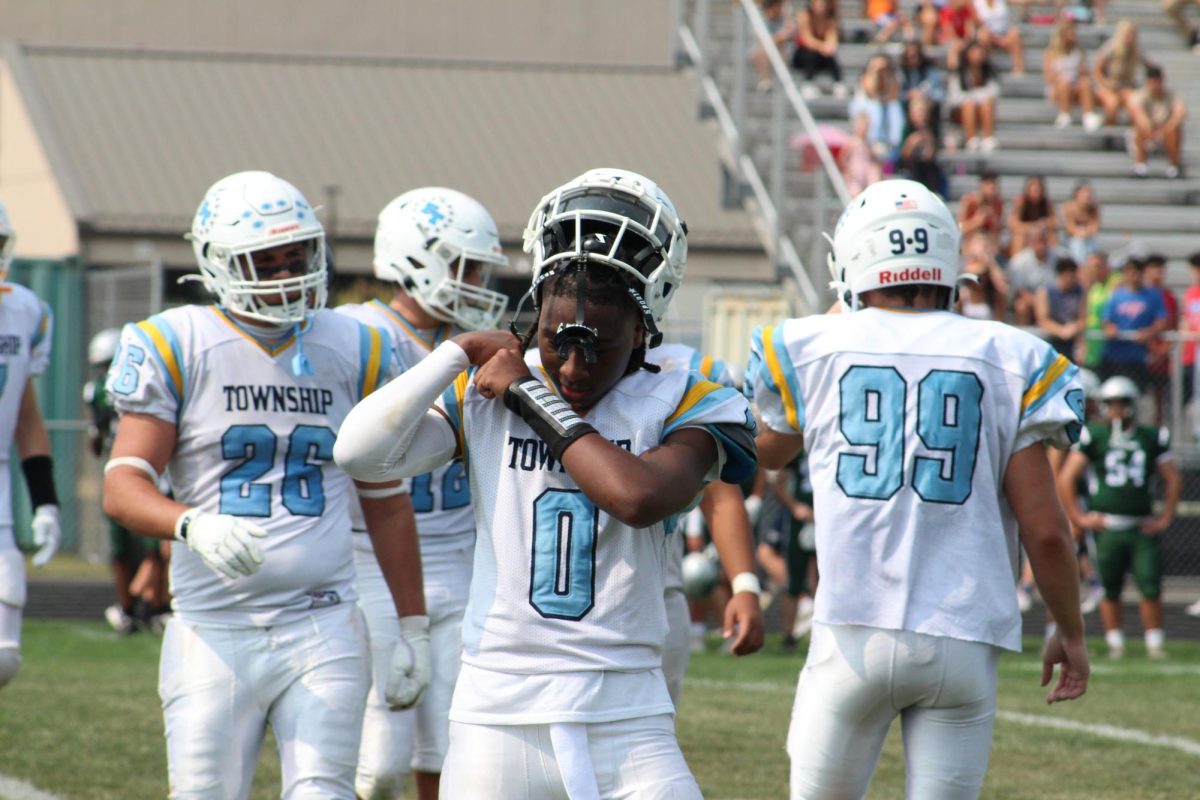The Ultimate Program: AP VS IB English!
February 21, 2019
The 9th and 10th graders of FTHS are faced with a dilemma; to do IB, or not to do IB. When I was a sophomore, I felt that it was a difficult decision to make for a multitude of reasons, but I decided not to do it at the end of the day due to the small science and math program. However, as someone who understands the difficult decision, I conducted a series of interviews about the ultimate program (IB v. AP) based on the teacher’s perspective. Today, I present the answers from interviews about the program from two English teachers in our school, Mrs. D’Ambrosio and Mrs. Richardon.
Mrs. D’Ambrosio:
1.You have been teaching AP English for a while. Is there anything challenging you find when teaching the class?
I think the largest challenge is the number of students, regardless of their skill level. Simply put, not all students are up for the work and may not have the willingness to go above and beyond what is required for the class.
2. How has the AP curriculum changed over time and how has this affected the way students perform in class?
The curriculum has not changed; however, the way it is taught has changed. There has been much more focus and emphasis on how to display the correct answer in regards to the AP test itself than there has been in the previous years of me teaching the course.
3. What do you believe are the factors that lead to so many kids taking AP? Do you believe students manage the class well and do you think they know what they get into?
The districts’ initiative to be inclusive to all students who wish to rise to the occasion has led to the abolishment of teacher recommendations as well as the prerequisites that were once part of the process.
4. Do you know anything about the IB Program and how it compares to AP? For example, what would be more challenging, and what would be more beneficial in the long run?
There is some contention between the two classes because of weighting; it has become a issue discussed on the district wide level.
5. One of the main differences between AP and IB is that in AP the content prepares students for the AP Test that is taken at the end of the year, while IB takes time to prepare you over a long period. Do you think there is an advantage of one over the other in that regard.
Not to teach to the test but teach to skill. It really depends on how it is taught. I try not to teach the test although the skills taught of course prepare you as the end goal is still to prepare you for the AP Test.
6. Finally, what is your favorite part about teaching AP English and why?
Definitely the students; they are always interesting and everyone is unique in open discussions regardless of the topic.
Mrs. Richardson:
1. I know you teach both IB and AP Literature. Which one would you consider more challenging to the students?
It depends; for someone who doesn’t like to read much, AP Literature is harder, as there is much more reading day to day given the course. In terms of workload, they are comparable, however, IB has more heavily weighted assignments, research papers, projects, and oral examinations, which you generally don’t have until graduate school. That being said, because these big assignments are such a integral part of the program and often take a long time to complete, there is more time to take them on so in that way IB is not as challenging as perceived given the time we have.
2. Some IB teachers agree that often they have more time to teach concepts within 2 years instead of one. Do you feel rushed when teaching concepts in either program?
AP sometimes feels much more rushed as you are always preparing for the AP Test. Teaching students to prepare for every possible question is a big challenge as even the language style can vary from say Ancient Greece to something you read yesterday, so AP Students must be prepared for the unpredictability and we are always working to address that. AP students also must have under control every genre of literature and in that way the goal of doing well on the AP Test can affect the rate of the class and add to the stress. IB can be stressful, however we have two years to get our assignments under control and we have exams that often take the form of essays that center around familiar readings that we’ve looked at all year. In that way, IB can be beneficial as it doesn’t come down to one test and is instead a series of wide ranging assignments.
[sic]
4. What is your favorite part about teaching?
I love to read and write. I’ve been writing since i’ve learned to read and have always enjoyed it and so I feel very passionate about it and the fact that everyday I can share my passion about literature it is great and something I very much look forward to. What is great about the students I teach is that every year I have a student that can highlight a new issue and new perspective that I hadn’t taken into consideration before. Another part I love is to be able to see the kids I teach and their analytical skills and reading skills improve over the duration of the year and I often keep in touch with students over time, so seeing the kids I taught go onto great things later is something I really enjoy.
Overall, it can be stated that the great debate of AP and IB can be narrowed the interests of a particular student, coupled with one’s inclination towards the type and rigor of the work they receive in their English course. As Mrs. D’Ambrosio and Mrs. Richardson said, both courses in their respective programs are a great fit for all students, but it is the decision and interest of the individual, above all, to make a decision as to which course they find more appealing altogether!















































Mrs. Lanza • Feb 21, 2019 at 6:09 pm
Good article, Ben! It’s always interesting to explore these two avenues, though the comparison is really a course (or series of courses) against a program. I agree that the students make either AP or IB a delight, and it’s great that our school offers both options. I look forward to reading more of your writing!